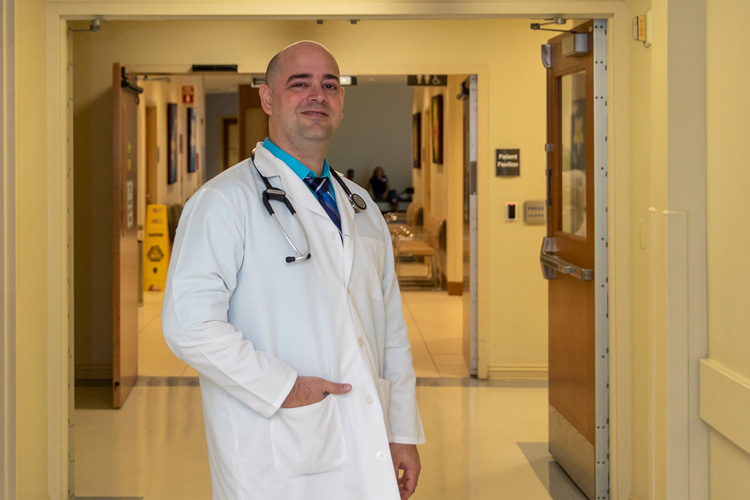
Many seemingly healthy adults you come into contact with in your daily life are carrying an unpleasant secret – one you definitely do not want to share.
It’s “Staphylococcus aureus” – what Merck Manuals calls “the most dangerous of all of the many common staphylococcal bacteria.”
The National Institutes of Health estimates up to half of all adults are or have been colonized by this particular pathogen at some point in their lives, with the germ living in people’s noses or on their skin.
Oddly, those who carry this bacterium often show no obvious symptoms of a problem.
Why is that important?
Because while most of the infections this particular bacteria cause are, according to the Mayo Clinic, “relatively minor skin infections,” it can lead to far worse problems.
How much worse? According to Cleveland Clinic Indian River Hospital’s newly arrived infectious disease specialist Dr. Jorge Requena-Penenori, a whole lot worse.
Pneumonia, heart valve infections, septicemia, food poisoning, toxic shock syndrome, septic arthritis and death have all been linked to Staphylococcus aureus infections.
As Requena-Penenori puts it, “It’s unbelievable how many types of infection you can get with the same bacteria. I would say [Staphylococcus aureus] is probably the most scary one. There are other really bad microorganisms that cause infections and even have a higher mortality, but you don’t see them very often. You see one case every 10 years or less. Staph aureus you see every day. People get sick every day with it and people die from Staph aureus infections every day.”
The highly approachable Requena-Penenori looks back to his training to add, “One of my professors in fellowship said, ‘You know when a physician is in infectious diseases because he is very scared of Staph aureus and nobody else is.’”
Requena-Penenori says those with implanted medical devices such as artificial heart valves, replacement hip or knee joints, pacemakers and such are even more susceptible to serious Staph aureus infections that the average person without an implant.
“Staph aureus,” Requena-Penenori explains, “is like many other bacteria. It is, I would say, smart. It looks for the places where it cannot be found and killed.
“In prosthetic devices there are no blood supplies. There are no leukocytes, which is the type of cells we have to defend us, so there are no antibodies. The bacteria tends to accumulate in those areas and create a biofilm, become very sticky and create a protection versus antibiotics. And most of the time when one of these devices gets infected, the only solution possible is to take the device out.” That’s a prospect no one who’s had a successful hip replacement wants to imagine.
Perhaps the most galling aspect of Staph aureus is that we now know your mother or grandmother was right. You actually can pick up this nasty “bug” simply by turning a doorknob.
Merck Manuals confirms that by stating Staphylococcus aureus “can spread from person to person by direct contact, through contaminated objects such as gym equipment, telephones, doorknobs, television remote controls or elevator buttons, or by the inhalation of infected droplets dispersed by sneezing or coughing.”
All that said, the calm and collected Requena-Penenori isn’t about to panic. And neither should you.
Instead, Requena-Penenori urges people to watch for symptoms. “I would say fever is very common – you can have a cough, shortness of breath, diarrhea – but if I had to pick the one most common symptom, I would say fever.”
And, like most infections, the earlier a Staphylococcus aureus infection is diagnosed, the greater the odds it can be cured.
If you are concerned you may have picked up this kind of staph infection, consult your primary care physician or contact an infectious disease specialist.
Dr. Requena-Penenori is now accepting new patients at two locations: Cleveland Clinic Indian River Hospital’s Health & Wellness Center located at 3450 11th Court in Vero Beach and Primary Care North at 801 Wellness Way in Sebastian. The phone number is 772-794-5631.



